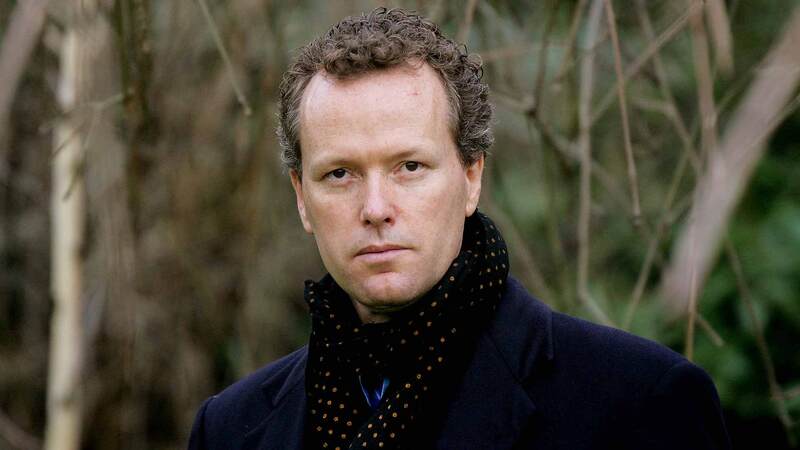You are viewing your 1 free article this month. Login to read more articles.
Tokarczuk and Handke win Nobel Prizes in Literature
Olga Tokarczuk and Peter Handke have won the Nobel Prizes in Literature 2018 and 2019, with authors criticising the Swedish Academy for Handke's win as it attempts to move on from recent scandals.
Announcing the winners, the Academy said Polish author Tokarczuk was recognised “for a narrative imagination that with encyclopedic passion represents the crossing of boundaries as a form of life” while Handke won “for an influential work that with linguistic ingenuity has explored the periphery and the specificity of human experience.”
Authors including Salman Rushdie, Hari Kunzru and Miha Mazzin have criticised Handke's win. In 1999 Rushdie named Handke runner-up for “International moron of the year” for his “series of impassioned apologias for the genocidal regime of Slobodan Milošević”. Handke attended war criminal Milošević's funeral in 2006. Reacting to Handke's win, Rushdie told the Guardian “I have nothing to add today, but I stand by what I wrote then.”
The Austrian author, who was awarded the 2019 prize, was born 1942 in a village named Griffen, located in the region Kärnten in southern Austria. This was also the birthplace of his mother Maria, who belonged to the Slovenian minority. His debut novel Die Hornissen was published in 1966. Together with the play ‘Publikumsbeschimpfung’ (‘Offending the Audience’, 1969), he set his mark on the literary scene, said the Academy.
"More than fifty years later, having produced a great number of works in different genres, 2019 Literature Laureate Peter Handke has established himself as one of the most influential writers in Europe after the Second World War," said the Academy. "The peculiar art of Peter Handke is the extraordinary attention to landscapes and the material presence of the world, which has made cinema and painting two of his greatest sources of inspiration."
Novelist Jennifer Egan, president of literature and human rights organisation Pen America, said the organisation is "dumbfounded" by Handke's win. In a statement she said: “We are dumbfounded by the selection of a writer who has used his public voice to undercut historical truth and offer public succor to perpetrators of genocide, like former Serbian President Slobodan Milošević and Bosnian Serb leader Radovan Karadzic. We reject the decision that a writer who has persistently called into question thoroughly documented war crimes deserves to be celebrated for his ‘linguistic ingenuity.’ At a moment of rising nationalism, autocratic leadership, and widespread disinformation around the world, the literary community deserves better than this. We deeply regret the Nobel Committee on Literature’s choice.”
Man Booker International winner Tokarczuk was travelling by car with her partner when she found out she had won the 2018 prize.
Tokarczuk was born 1962 in Sulechów in Poland, and today lives in Wrocław. She made her debut as a fiction writer 1993 with Podróz ludzi Księgi (The Journey of the Book-People). Her breakthrough came with her third novel in 1996 Prawiek i inne czasy (Primeval and Other Times, 2010). The novel is an "excellent example of new Polish literature after 1989", said the Academy and added her 2014 historical novel Księgi Jakubowe (The Books of Jacob) "showed the supreme capacity of the novel to represent a case almost beyond human understanding."
The Academy added: "Tokarczuk never views reality as something stable or everlasting. She constructs her novels in a tension between cultural opposites; nature versus culture, reason versus madness, male versus female, home versus alienation."
In the UK, Fitzcarraldo Editions has published two novels by Tokarczuk in English. Flights, translated by Jennifer Croft, was published in 2017, and won the Man Booker International Prize in 2018. Her second novel with Fitzcarraldo Editions, Drive Your Plow Over the Bones of the Dead, translated by Antonia Lloyd-Jones, appeared in 2018 and was shortlisted for the Man Booker International Prize in 2019. Fitzcarraldo Editions will publish The Books of Jacob, Tokarczuk’s Nike Prize-winning novel, in 2021.
Fitzcarraldo publisher Jacques Testard said: “Olga Tokarczuk is such a special writer – she has an incredible range. We've seen that with her two novels published in English in recent years. Flights is a hugely ambitious 'constellation' novel on human anatomy and travel which ranges across the centuries. Drive Your Plow Over the Bones of the Dead is, on the surface, a much more conventional novel but turns out to be a sly subversion of noir. We publish The Books of Jacob, her magnum opus, in 2021, and that's a completely different beast again – a novel over a thousand pages long focusing on Jacob Frank, a highly controversial historical figure from the eighteenth century and the leader of a mysterious, heretical Jewish splinter group that converted at different times to both Islam and Catholicism. Olga Tokarczuk is also a political activist and dissident, and a figurehead for a more progressive, feminist, environmental politics. She’s a public intellectual and doesn’t shy away from her responsibility as a writer.”
Two winners were announced by Mats Malm, Permanent Secretary of the Swedish Academy in Stockholm today (Thursday 10th October), after the prize was not awarded in 2018 over a sexual assault scandal.
Last year’s event was axed after accusations of sexual assault against photographer Jean-Claude Arnault, the husband of Swedish Academy member and poet Katarina Frostenson. Arnault was convicted of rape in October and sent to prison for two years. Frostenson stepped down and the fallout from the initial allegations led to nearly half the 18-member academy resigning their posts.
Since last year the Academy has made a series of changes to the panel. Under the changes, the Academy will no longer have any members who are subject to conflict of interest or criminal investigations. It will also include five independent external members to help select the Nobel Laureates.
The last winner of the Nobel Prize in Literature in 2017 was Kazuo Ishiguro.


















